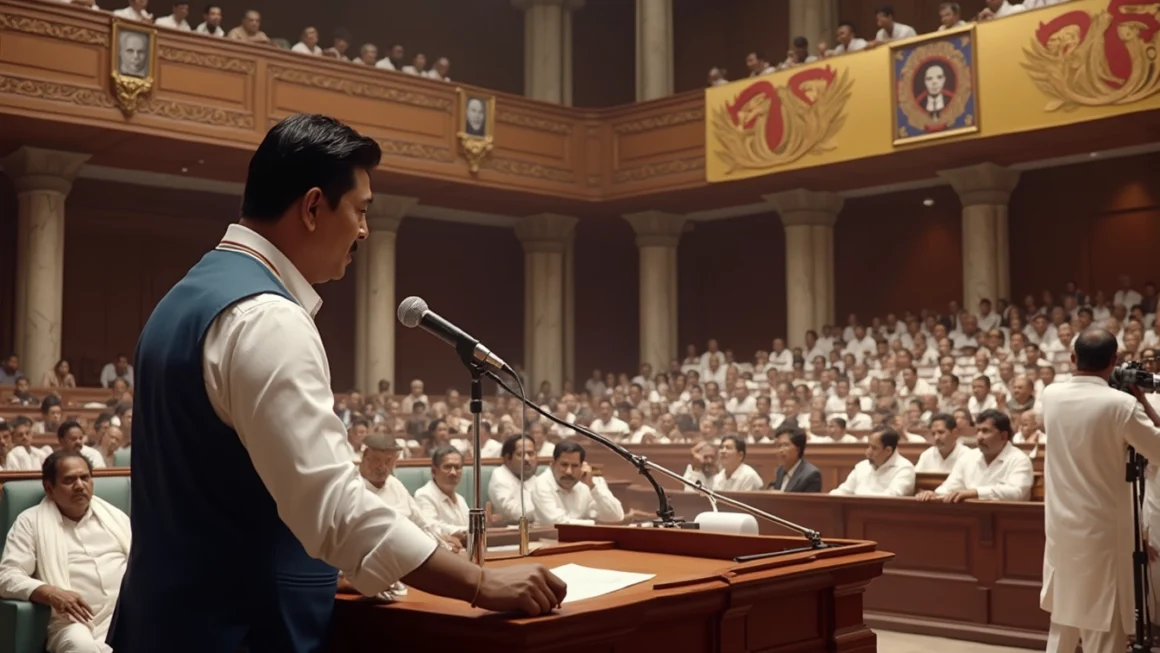Introduction
Table of Contents
The recent political developments in Tamil Nadu have stirred a significant amount of discourse and debate. The elevation of Udhayanidhi Stalin, Chief Minister MK Stalin’s son, to the position of Deputy Chief Minister has been met with various reactions. The BJP has particularly questioned the merit and justification behind this decision, bringing into focus the role of familial ties in Indian politics.
BJP’s Stand on Udhayanidhi Stalin’s Elevation
The BJP has been vocal in its criticism of Udhayanidhi Stalin’s promotion. They argue that his rise to the Deputy Chief Minister position is primarily due to his lineage rather than his political acumen or experience. According to BJP spokespersons, this move is reflective of dynastic politics, a trend they believe undermines the democratic values of meritocracy and transparency.
Merit vs. Dynasty
One of the key arguments from the BJP revolves around the concept of meritocracy in governance. They posit that Udhayanidhi’s elevation could set a precedent where family connections overshadow individual competencies. This notion is critical in a democratic setup where positions of power ideally should be filled based on merit and public service records rather than familial ties.
Udhayanidhi Stalin’s Political Journey
Before rising to the Deputy Chief Minister’s office, Udhayanidhi Stalin has had a notable, albeit relatively short, political journey. He has held positions within the Dravida Munnetra Kazhagam (DMK) party and has been actively involved in state politics. However, critics argue that his experience does not sufficiently justify his new role as Deputy Chief Minister.
Political Achievements and Criticism
Despite the criticisms, Udhayanidhi has managed to make a mark through various initiatives and campaigns. His supporters point out his involvement in social welfare schemes and his efforts in party organization. However, detractors insist that these contributions do not necessarily qualify him for the significant responsibility that comes with the Deputy Chief Minister’s position.
The Role of Dynastic Politics in India
Dynastic politics is not a new phenomenon in India. Many significant political families have wielded considerable influence over the decades, with family members often succeeding each other in political roles. This tradition has led to debates about the influence of familial legacy over democratic principles.
Historical Context
Indian political history is replete with examples of dynastic rule. From the Nehru-Gandhi family in the Congress party to various regional political dynasties, the trend is evident across the spectrum. Proponents argue that political aptitude can be cultivated within families, while opponents see it as a barrier to true democratic governance.
Impact on Tamil Nadu Politics
The elevation of Udhayanidhi Stalin could have wide-ranging implications for Tamil Nadu’s political landscape. It might strengthen the DMK’s position within the state, offering a consolidated family leadership. However, it could also galvanize opposition parties who might rally against what they perceive as dynastic injustice.
Future Political Scenarios
The coming years will be crucial in determining the long-term effects of this decision. If Udhayanidhi proves to be an effective leader, it might bolster the argument that familial successors can indeed lead competently. Conversely, any shortcomings might provide strong ammunition to critics of dynastic politics.
Conclusion
The discourse surrounding Udhayanidhi Stalin’s rise to Deputy Chief Minister highlights a significant debate in Indian politics – the balance between merit and dynasty. While his promotion underscores the influence of political families, it also raises important questions about governance and democratic fairness. As Tamil Nadu navigates this development, the broader implications for Indian politics remain to be seen.
For more articles related to political developments and insights, visit this personal portfolio website.




